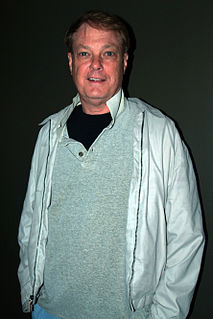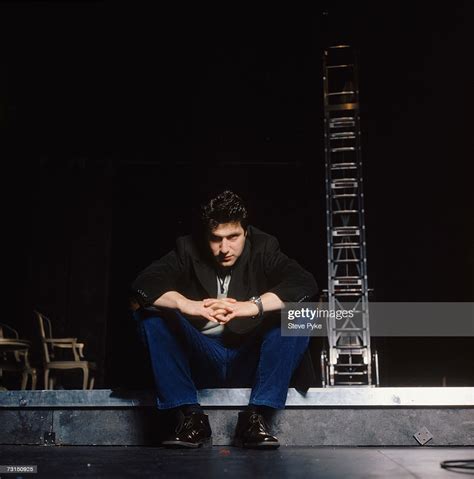A Quote by David Lynch
If we didn't want to upset anyone, we would make films about sewing, but even that could be dangerous. But I think finally, in a film, it is how the balance is and the feelings are. But I think there has to be those contrasts and strong things within a film for the total experience.
Related Quotes
To spend any time with someone who is among the top five film composers of the last 50 years is pure gold dust. I mean, not necessarily stylistically, because everyone is different in what their music sounds like, but the approach and how to look at a film, how to think about a film, how to decide what you want to do, how to think about characters, how to think about art, how to think about narrative, how to liaise with producers, how to liaise with directors.
I make films that are very personal, and I always have. It's kind of the only thing that I think I have to offer as a filmmaker: the intimacy I've had with experience in a particular world, so the film comes from things I've seen and things I've felt. It gets transformed by the process. I don't think I'd ever start making a film until I had both the intimacy with the subject and the distance to make it live in a certain way.
The Limits Of Control is not surrealism, but it is an experiment in which expectations are deliberately removed: expectations for narrative form, for action in a film, for certain emotional content. We wanted to remove those things and see if we could still make a film that was a beautiful film experience, with deliberately removing things many people would expect.
I think strong rhetoric and strong action are two separate things. Anyone can use tough words. Anyone can go over the top and say things that sound strong. But sounding strong is not enough. You have to know exactly how you're going to do it. And if you look at some of the policies he's talked about, they would not make America stronger.
I left film because I felt that photography was my art. It was something I could do on my own, whereas film was so collaborative. I thought as a photographer I could make something that was artistic and that was mine, and I liked that. And it wasn't until I got back into film and I have very small crews and I could do very tiny filmmaking that wasn't 100 people that I still felt that I was making something artistic as a filmmaker. So, you know, I'm an artist, and whether it's photography or film, I want my voice to be there and I think my voice is very strong in this film.
Sometimes the best set experiences make for the worst films. So, you don't want it to be too good an experience! But the bulk of your life is working with people and collaborating so you don't want anyone to be miserable on your film either. You want it to be something that people walk away from saying that it was a good experience for them and hopefully a good film. As a director, you are sort of leader of that troupe for that period of time, so you're aware of morale and your effect - how you are as a person and how that sort of trickles down to everyone else.
When you think of things like The Sopranos, The Wire, Damages, they are beating film on a regular basis. Most films are terrible. It's only the 2% that are good. There's things you can do on TV which you can't do on film. There is something about those episodic, serialisations that are grand and operatic.







































